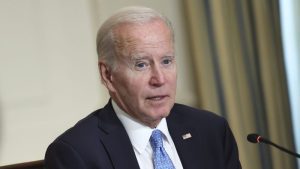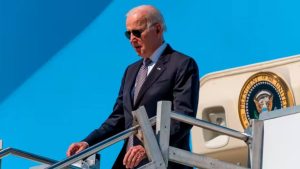A Delaware judge ordered a halt to Twitter’s lawsuits against Elon Musk on the eve of trial to give the billionaire time to finance his $44 billion US takeover of the social media platform, according to a Thursday court filing.
The litigation was halted until Oct. 28 at 5 p.m. ET to allow Musk, who is chief executive of electric car maker Tesla, to finance the deal.
Judge Kathaleen McCormick said if the deal did not close by her deadline the parties were to contact her to schedule a November trial. Musk was scheduled to go to trial on Oct. 17 and his Thursday deposition was postponed by mutual agreement.
Investors appeared to be reassured that the order would end several days of confusion about the state of the deal.
Twitter shares, which ended the day down 3.7 per cent, rose 2.7 per cent in after-hours trade.
Reversal for Musk
The world’s richest person said this week he would purchase Twitter at the price he agreed in April, $54.20 US per share, but conditioned the deal on receiving debt financing.
That marked a reversal for Musk, who spent months locked in litigation with Twitter as he tried to get out of the deal. He claimed Twitter misled him about the number of real users on its platform, among other claims.
Musk said in a Thursday court filing banks are working cooperatively to fund the deal but that he needed more time, arguing a brief delay was still preferable to the months it would take to go through a trial and appeal.
Twitter said in a court filing the judge should reject the proposal and in an indication of the lack of trust between the parties, said Musk’s plan was “an invitation to further mischief and delay.”
Twitter said Musk should have to close next week and it said a corporate representative for a lending bank testified on Thursday that Musk has yet to send them a borrowing notice and has not communicated that he intends to close.
Financing uncertain
Major banks that committed to fund $12.5 billion US, or about 28 per cent of the deal, could be facing hefty losses as the swift pace of interest rate hikes has ratcheted up market volatility and dampened appetite for leveraged financing.
“There’s still some uncertainty based on whether or not Elon can find the actual financing to do the deal,” said Randy Frederick, managing director of trading and derivatives for the Schwab Center.
Musk has raised $15.4 billion US by selling Tesla shares this year and is leaning on large investors for a chunk of the financing, leading to speculation over whether he will sell more of the electric-vehicle maker’s stock to fund the deal.
“Financing will eventually end up going through one way or another. It is just a point of negotiating terms at this stage,” said Robert Gilliland, managing director at Concenture Wealth Management.

